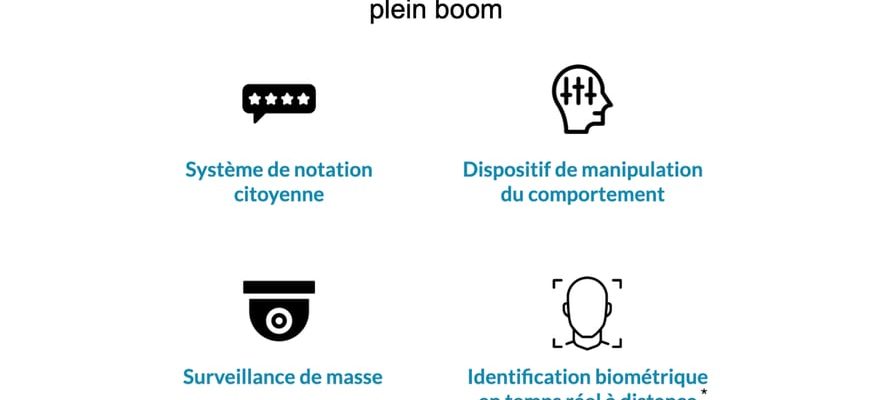After three days of intense negotiations, the member states of the European Union reached an agreement, Friday, December 8, on the first regulation in the world aimed at regulating the artificial intelligence sector. “Historic!”, welcomed European Commissioner Thierry Breton, at the origin of the project presented in April 2021.
At the heart of the negotiations: a difficult compromise to find between competitiveness – European economies wishing to avoid putting obstacles in the way of their nuggets as much as possible – and protection against the excesses of these revolutionary technologies which have made a place for themselves in our daily lives.
AI Act: a compromise and rare prohibitions
© / The Express
The Artificial Intelligence Act (AI Act) thus provides for a ban, except in security exceptions, on remote biometric identification in real time, mass surveillance and behavior manipulation devices or even social score systems (citizen rating ), like the one that currently exists in China. Furthermore, the legislation provides for supervision of AI which interacts with humans: these applications will now be obliged to warn the user that they are in contact with a machine.
This political compromise will be supplemented by technical work to clarify the details of the text. The AI Act could inspire other countries to implement similar legislation, as was the case with the General Data Protection Regulation (GDPR), adopted in 2016 in the EU.
